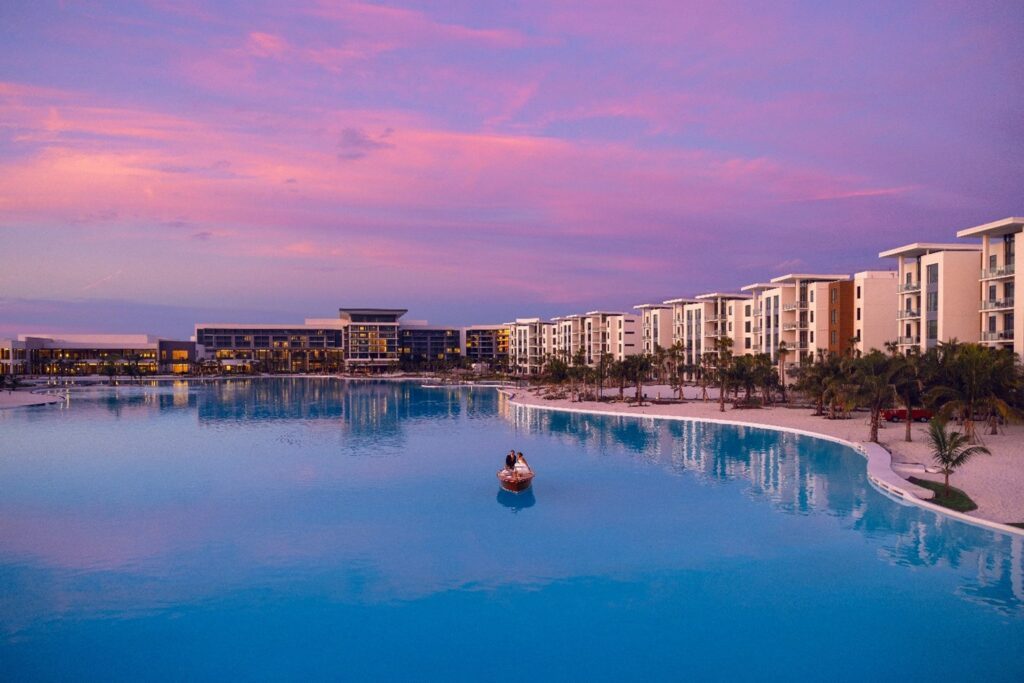As we keep abreast the continually changing impact of COVID-19 on the economy in general and hospitality sector in particular, the following article discusses whether or not U.S. theme parks will open this summer amid further pandemic fears and stay-at-home orders. While most year-round attractions are closed, it remains to be seen whether the seasonal attractions will open to usher in the summer season.
Published by: Rick Munarriz/The Motley Fool
Published date: April 2020
There’s a burning question weighing on investors and enthusiasts alike when it comes to theme parks: Will there be a summer season for the industry? Regional amusement park operators Six Flags (NYSE:SIX) and Cedar Fair (NYSE:FUN) don’t have much of a window to make 2020 happen for them. If they can’t open their gated attractions in the next couple of months, the year is as good as gone. Most of their parks operate seasonally, with the summer months accounting for the lion’s share of their revenue and more than all of their operating profit.
Larger theme park operators Disney (NYSE:DIS), Universal Studios parent Comcast (NASDAQ:CMCSA), and SeaWorld Entertainment (NYSE:SEAS) operate year-round theme parks, but that only means that they’ve been feeling the pinch since the industry shut down across the country in mid-March. COVID-19 trends have been gradually improving on many fronts, but no one feels confident enough to let theme parks unlock their turnstiles to let the masses scratch their thrill-seeking itch. There’s a lot to lose financially for the five publicly traded players if we don’t see an operating season this summer, but there’s obviously a lot more to lose if rolling back social distancing results in a renewed spike in cases and fatalities.
Riding out the storm
Park operators have been pushing out reopening dates to the point where some have just decided to close their attractions indefinitely, abandoning the art of offering tentative timelines to go back to business. Time is money, of course, especially as we close in on the peak summer season. However, time is also healing, and right now that is taking precedence over the lost jobs and experiences.
We may eventually wind up where only some of the parks reopen this summer. In California — the only state where are all five companies have a physical presence — Governor Gavin Newsom said this week that “large-scale events that bring in tens of thousands of people” are unlikely to be in the cards this summer. He was referring to music festivals and other summertime gatherings, but that same broad stroke would also seem to fit the bill for the state’s theme parks.
Right now the companies are just trying to survive through the downturn. Cedar Fair announced this week that all 2020 annual and seasonal passes will now include 2021 at no additional cost, a move that cools down refund requests but poses cash flow challenges for next year. The few operators that are still clinging to actual reopening dates — Six Flags is aiming for mid-May starts, and Comcast’s Universal park remains closed until at least the end of May — are likely more than just a handful of weeks away from unlocking their turnstiles.
A lot can and probably will happen between now and the start of the summer season. However, even in the ideal scenario — where the COVID-19 cases thin out considerably — it’s not as if it will be business as usual for the industry. Attendance will take a sharp drop no matter how things play out. The economy’s reeling, and summer travel plans take time to piece together.
Each player will feel the pain in different places. SeaWorld will lose momentum after rattling off back-to-back years of positive attendance growth following years of declines. Regional amusement park operators Six Flags and Cedar Fair currently may seem to have the least to lose since their traffic is largely local and not at the mercy of iced domestic and international travel. But the real survivors in this mess would have to be Disney and Comcast because the lion’s share of their revenue is generated from segments that continue to operate through the shelter-in-place phase of this scary pandemic.
There’s uncertainty for the industry given the public health crisis and recessionary fears. No one knows when thrill seekers and young families will be able to return, and if they’ll return even when the parks are allowed to reopen. The goal this summer is just to stay solvent — a tall order in an industry where there are currently more questions than answers.


